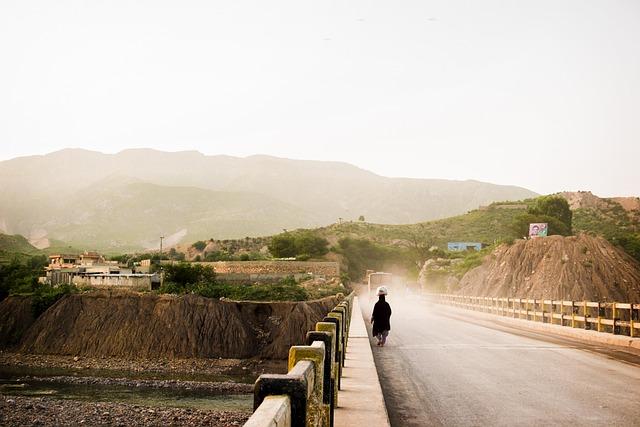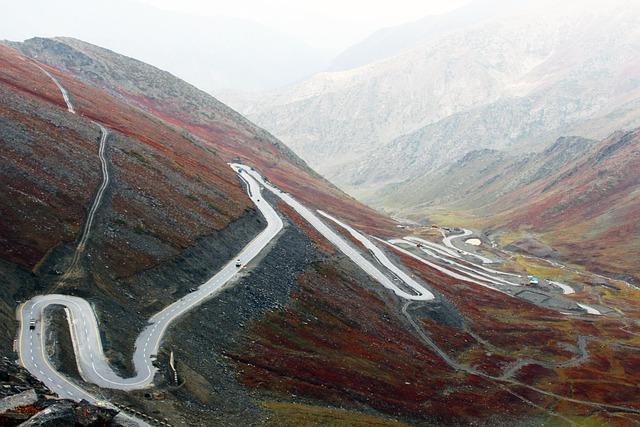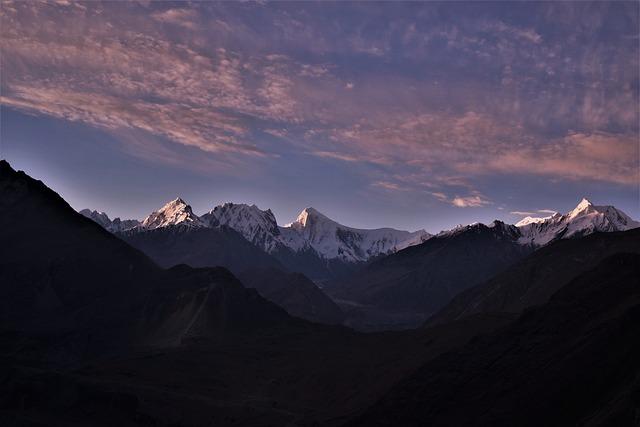Title: Pakistan’s Strategic Position in Global International Relations: Navigating the Tides of Power
Introduction:
Nestled at the crossroads of South Asia, Central Asia, and the Middle East, Pakistan stands as a silent sentinel of geopolitical significance. Its rugged mountains, sprawling plains, and bustling cities tell a story of resilience and complexity, woven into the broader tapestry of international relations. In a world increasingly marked by shifting alliances and emerging powers, Pakistan’s strategic position emerges as both a challenge and an opportunity. As it grapples with regional tensions, historical ties, and global dynamics, the nation finds itself at the intersection of economic corridors, military alliances, and diplomatic endeavors. This article explores how Pakistan’s unique geographical location, cultural heritage, and evolving political landscape propel it into a pivotal role in contemporary global affairs, shaping not only its destiny but also the intricate web of international relations that governs our interconnected world.
Understanding Pakistans Geopolitical Landscape in Global Affairs
Pakistan’s geographical location places it at the crossroads of South Asia, Central Asia, and the Middle East, significantly influencing its role in global affairs. This strategic positioning allows Pakistan to serve as a key transit hub, connecting vital land routes and energy corridors. Key factors contributing to its geopolitical significance include:
- Proximity to Major Powers: Pakistan’s closeness to both China and India shapes its diplomatic relations and security strategies.
- CPEC (China-Pakistan Economic Corridor): This ambitious project is a driver of economic growth, enhancing Pakistan’s strategic importance to China and altering dynamics across the region.
- Access to Arabian Sea: The port city of Gwadar emphasizes Pakistan’s role in trade, maritime security, and potential energy exports.
The interplay of regional conflicts also amplifies Pakistan’s importance in international relations, especially concerning Afghanistan and India. The complexities in its relations with neighboring countries often put Pakistan at the center of international negotiations and strategic alliances. Major influences include:
- Counter-Terrorism Efforts: Pakistan’s involvement in regional stability initiatives affects its international alliances, particularly with the U.S. and NATO.
- Nuclear Deterrence: As a nuclear-armed state, Pakistan’s military capacity plays a critical role in South Asian security dynamics.
- Participation in Global Institutions: Pakistan’s engagement in organizations like the UN and the OIC allows it to voice concerns about international issues affecting developing countries.

Navigating Regional Dynamics: Pakistans Role in South Asian Security
In the complex tapestry of South Asian geopolitics, *Pakistan* stands at a pivotal junction, influencing not only regional stability but also the broader international landscape. Its historical ties and ongoing relationships with major powers, such as China and the United States, reflect a multifaceted approach to diplomacy and security. The nation’s strategic location, flanked by key players like India and Afghanistan, positions it as a critical partner in addressing challenges such as terrorism, cross-border insurgencies, and economic development. With its involvement in initiatives like the China-Pakistan Economic Corridor (CPEC), Pakistan aims to bolster its economic stature while also enhancing its role as a gateway for commerce between Central Asia and beyond.
Moreover, Pakistan’s military capabilities and nuclear deterrence posture further complicate its role in regional security, emphasizing the importance of *strategic stability*. Through various mechanisms, including bilateral dialogues and participation in multilateral forums like the Shanghai Cooperation Organization (SCO), Islamabad seeks to foster constructive relationships with neighboring countries. Key priorities for Pakistan in this intricate security matrix include:
- Maintaining peace along the Line of Control with India
- Countering the influence of non-state actors
- Ensuring economic resilience through partnerships
- Promoting regional cooperation on issues like climate change and water security
| Country | Role in Security | Key Interests |
|---|---|---|
| India | Major regional competitor | Territorial integrity and influence |
| Afghanistan | Source of instability and opportunity for collaboration | Counterterrorism and refugee management |
| China | Strategic ally | Economic investment and regional connectivity |
| United States | Key partner in counterterrorism | Stability in Afghanistan and nuclear non-proliferation |

Economic Partnerships and Alliances: Leveraging Trade for Strategic Leverage
In the evolving landscape of global commerce, nations are increasingly recognizing the power of trade as a tool for diplomatic and strategic leverage. For Pakistan, advantageous partnerships can bolster its economic resilience and amplify its voice in international arenas. Leveraging bilateral and multilateral agreements, Pakistan aims to enhance its trading capabilities, pivoting towards nations that promise mutual growth. These partnerships not only expand market access for Pakistani goods but also facilitate technology transfer and innovation, driving national development. Key areas of focus include:
- Cultural Exchange: Promoting cultural ties to foster better trade relations.
- Infrastructure Development: Collaborating on projects that enhance trade routes.
- Investment Opportunities: Attracting foreign investments through strategic trade partnerships.
Moreover, Pakistan’s geostrategic location serves as a bridge connecting various markets, making it an attractive candidate for regional trade alliances. By participating in agreements such as the China-Pakistan Economic Corridor (CPEC), Pakistan seeks not only to improve its infrastructure but also to position itself as a pivotal player in trade between China, the Middle East, and Central Asia. The potential for these alliances is reflected in a recent comparative analysis of trade agreements, illustrated in the table below:
| Partner Country | Trade Volume (2022) | Key Export Goods |
|---|---|---|
| China | $20 billion | Textiles, Machinery |
| Saudi Arabia | $8 billion | Fruits, Textiles |
| United States | $6 billion | Leather Goods, Pharmaceuticals |

Future Directions: Recommendations for Enhancing Pakistans Global Standing
To strengthen its global standing, Pakistan must pursue a multi-faceted strategy that focuses on diplomacy, economic growth, and cultural exchange. Initiating bilateral partnerships with emerging economies can pave the way for new trade agreements and investments. Alongside this, fostering closer ties with established powers through diplomatic engagements can secure Pakistan’s position in vital global discussions. Key recommendations include:
- Enhancing cooperation in technology and innovation sectors
- Participating actively in international organizations
- Implementing policies that promote foreign direct investment
- Encouraging cultural diplomacy through people-to-people contacts
Furthermore, investing in sustainable development initiatives will not only improve domestic resilience but also align Pakistan with global sustainability goals, enhancing its image abroad. Achieving energy independence could also be a focal point, as it would attract international partners and investors interested in clean energy solutions. The following table outlines specific sectors for growth:
| Sectors | Growth Opportunities | Collaborative Potential |
|---|---|---|
| Information Technology | Digital economy expansion | Joint tech ventures with Silicon Valley |
| Agriculture | Agri-tech innovations | Partnerships with agribusiness firms |
| Tourism | Eco-tourism development | Collaborations with global travel agencies |
| Renewable Energy | Solar and wind projects | Alliances with international green firms |
In Conclusion
Pakistan’s strategic position in global international relations serves as a compelling reminder of the intricate web of power dynamics that shape our world today. As a nation straddling the crossroads of South Asia, Central Asia, and the Middle East, Pakistan continues to play a pivotal role in addressing pressing global challenges, from security dilemmas to economic partnerships. As alliances form and shift, and as new challenges emerge on the horizon, one thing remains clear: Pakistan’s influence will be a vital factor in the ongoing dialogue among nations.
The realities of its geopolitical landscape are complex, underpinned by both historical grievances and opportunities for collaboration. As the global stage evolves, Pakistan must navigate these challenges with both caution and ambition, seeking a balance between sovereignty and engagement in international discourse. With its young and dynamic population, rich cultural heritage, and strategic assets, Pakistan stands at the threshold of redefining its role within the global order.
Ultimately, the path forward will depend on the ability of the country’s leadership and its citizens to leverage this strategic position not just for national interests, but also to contribute positively to broader regional and global stability. As the world watches, Pakistan’s actions will undoubtedly resonate, inspiring a narrative of collaboration, resilience, and mutual growth in an interconnected era.



